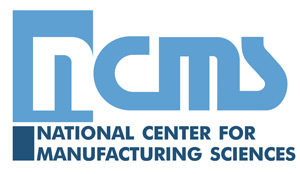Isotropically Conductive Adhesive (ICA)
NCMS Project #: 160216
Problem:
- There is a strong, market-driven impetus to eliminate lead (Pb) solders from the electronics industry. Japan and Europe are both supporting initiatives to eliminate lead from all consumer electronics products by 2006. There are several complicated issues associated with the lead-free alternatives, including very high reflow temperatures and incompatibility with lead-based solders.
- These issues include the preponderance of alloy combinations and the associated patent minefield, the complexity of most lead-free alloys, poor industry consensus on alternatives, and technical problems such as diminished mechanical properties and substrate wetting issues.
- Additionally, lead-free solders are not compatible with lead. Thus complete elimination of Pb from the substrate and components during the rework process is essential to assure there is no degradation of the solder joint.
Benefit:
- Development of an electrically conductive polymer-based coating for copper powder whose resulting copper powder maintains electrical conductivity for 55 days at 85ºC/85% RH.
- Development of a cleaning procedure for the copper prior to the coating process that allows the coating to be effective and repeatable.
- Development of a solution process that yielded products with repeatable conductivity retention, and that is inherently scalable.
- While a final product was not developed through this effort, the groundwork has been laid for development of the ECORAP-coating process and the scale up to a working industrial process using a tank reactor.
- It is important to mention that other efforts are now underway in the industry to address the many issues of lead-free solder in high-reliability applications. Therefore, further ICA product development is not being pursued.
Solution/Approach: To demonstrate and validate an alternative material, Isotropically Conductive Adhesive (ICA), to the conventional tin-lead solders used on circuit card assemblies. The Foster-Miller partners developed a new technology, electrically-conducting, oxidation-resistant adhesion promoter (dubbed ECORAP ), to enhance the performance and reduce the cost of lead-free isotropically conductive adhesive.
The objectives of the ICA CTMA project were to:
- Demonstrate a process to produce agglomerate-free ECORAP-coated copper powder that was scalable to production level quantities.
- Develop an ICA based on ECORAP-coated copper powder.
DOD Participation:
- U.S. Air Force (Warner Robins Air Logistics Center)
- U.S. Army (Tobyhanna Army Depot)
- U.S. Navy (Fleet Readiness Center East)
Industry Participation:
- Foster-Miller
- Henkel Technologies
- Loctite
- Virginia Commonwealth University
- NCMS
